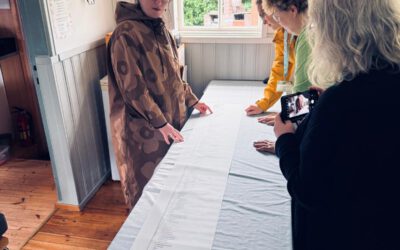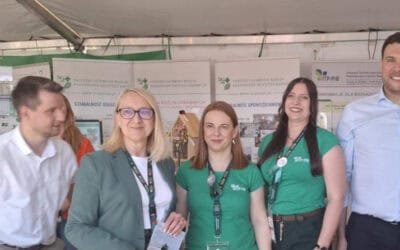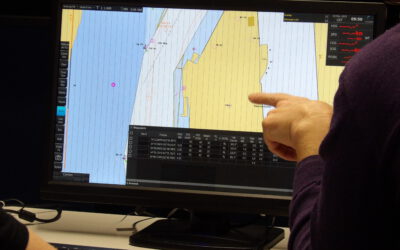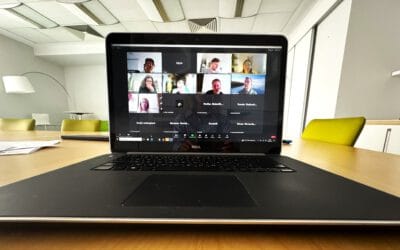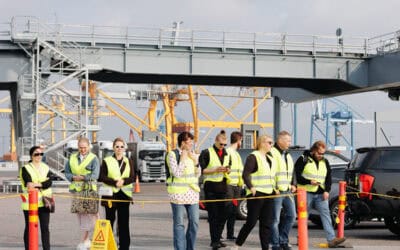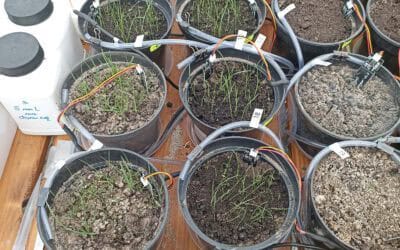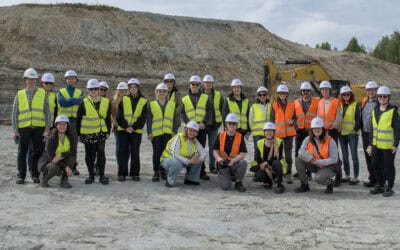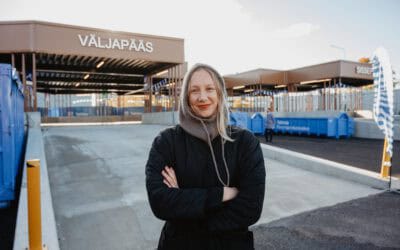Project News
Surprising results on historical potato genotypes in the Baltic States and Finland
The aim of this research initiative was to identify and characterise the most common heritage potato genotypes in these countries, combining phenotypic observations with advanced genetic analyses. The research unfolded in two stages. First, researchers in each country...
Polish Policymakers Briefed on Gypsum at National Field Days
This year, the annual National Field Days were held at the Łódź Agricultural Advisory Centre in Bratoszewice, bringing together experts, farmers, and government officials to explore developments and sustainable practices in Polish agriculture. The event opened...
Insights from the first round of S-100 pilot testing
The feedback from the first round of pilots has been received and analyzed. The feedback portrays valuable insight into the impact and functionality of the new S-100 standard in the Baltic Sea. Our first round of pilots took place in March of 2025, in which the S-101...
PestSpace online team Meeting – June 2025
We talked about, i.e.: 🔹 Introducing a new member of our team Edyta Woźniak-Dudzińska, who joins us as Communication Officer; 🔹 Using the PlutoF GO system – a tool that helps us collect and manage field data (e.g. about pests and diseases); 🔹 What kind of photos we...
Survey Results: Helsinki Residents Need More Knowledge on Drones
A recently published drone survey, conducted by Forum Virium Helsinki, asked 500 Helsinki region residents about urban air mobility and drone acceptance. The questions covered landing sites, use cases, and general knowledge about the topic. The survey is part of a...
Insights into co-developing the DistanceLAB online hub for hybrid work
In response to the ongoing evolution of the labour market, businesses across Europe are increasingly seeking innovative solutions to maintain productivity, collaboration, and team cohesion, regardless of whether colleagues are working from different cities or even...
Greenhouse trials of recycled nutrient fertilizers in progress
In CiNURGi a big part of our solution to nutrient recycling has been to develop and test recycled nutrient fertilizers. This summer CiNURGi is carrying out greenhouse trials of recycled nutrient fertilizers, using ryegrass planted in pots, which will be monitored and...
GYPREG Partner Meeting in Latvia Accelerated Collaboration
The partner meeting, which took place in the city of Valmiera , focused on the project’s progress and future plans. During the workshop sessions, partners discussed laboratory experiments, upcoming field demonstrations, stakeholder engagement, and communication...
Building Circular Communities in Tallinn – An interview with Kädi Eelmaa, from Tallinn Circular Economy Center
How can we make life in the city more circular? In the Circ@Home project, the Tallinn Circular Economy Center is helping figure that out. Based in Estonia’s capital, the organization works with local households, mapping out reuse and repair services, and showing how...
Building Circular Communities in Tallinn – An interview with Kädi Eelmaa from Tallinn Circular Economy Center
How can we make life in the city more circular? In the Circ@Home project, the Tallinn Circular Economy Center is helping figure that out. Based in Estonia’s capital, the organization works with local households, mapping out reuse and repair services, and showing how...
How water-smart ideas make the Baltic Sea region thrive
From a rich marine life to beautiful vacation places, the Baltic Sea offers numerous resources that can be exploited to boost the economic growth of the region without harming its ecosystem. Interreg Baltic Sea Region funded multiple cooperation projects that have contributed to a sustainable and innovative blue economy. Good and successful examples of smart blue initiatives include ALLIANCE, Baltic Blue Growth, Capacity4MSP and Blue Platform.
How to reduce pharmaceutical emissions posing a threat to wildlife in the Baltic Sea?
Active pharmaceutical ingredients are found in our environment at concentrations that pose a risk to wildlife. Pharmaceuticals are used to treat humans and animals, and we cannot stop using them. Instead, the overall consumption of pharmaceuticals tends to increase with an aging population. “We must find applicable solutions to decrease the emissions of pharmaceuticals in the Baltic Sea region, and we need to work together.”, states Noora Perkola, a leading researcher in Finnish Environment Institute and leader of the project “Clear waters from pharmaceuticals” (CWPharma).
Interreg fights aliens in the Baltic Sea
At any moment in the Baltic marine area, about 2,000 ships are transporting people, goods, but also stowaways: marine organisms from distant places, like Harris mud crabs, that colonise the Baltic Sea waters. The Interreg project COMPLETE brought together people with smart ideas how to translate the existing regulations into a working system to prevent alien species from invading the Baltic Sea.
Cooperation as the key to a climate-neutral Baltic Sea region
A common challenge for the countries in the Baltic Sea region is how to produce green and climate-neutral energy. In fact, as much as 75% of the EU greenhouse gas emissions still come from energy use and production. Cooperation and sharing good practices in Interreg projects, such as LowTEMP, Baltic Integrid and Area 21, can be a game-changer in accelerating the energy transition in the region.



